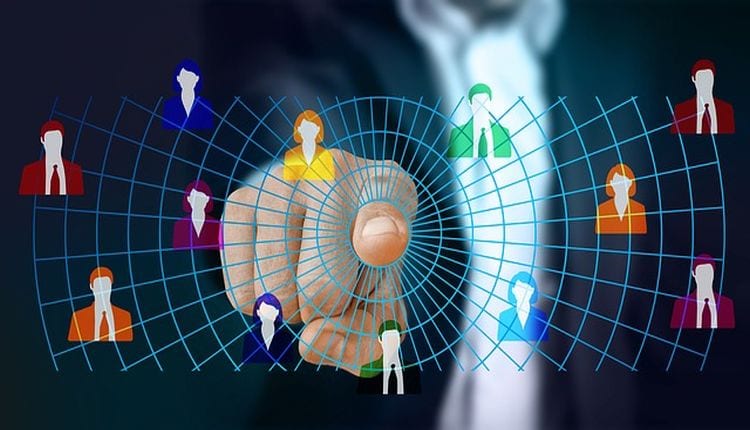By Aditya Malik, Founder and CEO of Valuematrix.ai (Nasscom and CII Mentor)
In a significant stride toward Artificial Intelligence (AI), machines are reaching new heights in predictive decision-making. This technological advancement raises crucial questions about its connotations for women in the workforce. While AI’s transformative potential is evident, it introduces unique challenges for women, placing them at a higher risk of job displacement. Beyond equity issues, this predicament has broader implications for the global economy and societal progress. As discussions unfold about job losses for half the population, the ripple effects encompass economic dynamics, innovation landscapes, community stability, and global competitiveness.
Let’s delve into a detailed examination of how AI is reshaping the gender landscape in the workplace, emphasizing the need to champion women in the AI era. The International Monetary Fund (IMF) estimated that 11% of jobs held by women are at risk of elimination, a higher percentage than those held by men due to the influence of AI and other digital technologies. This analysis sheds light on fostering gender inclusivity in the evolving technological advancements, stressing the significance of fairness and the urgency for a thriving future.
Roots of Biases in AI
Algorithms, by nature, aren’t designed to be discriminatory, and engineers rarely inject bias intentionally. Yet, bias can inadvertently creep into algorithmic recruitment due to the inherent complexities of AI and ML. The intricate ML process, with stages like dataset construction, engineer target formulation, and feature selection, harbors the potential for bias. Inadequate representation in datasets, engineer’s decision-making, and handling of unstructured data by annotators can collectively contribute to algorithmic bias, shedding light on the challenges within AI.
Human resource algorithms rely on historical data that perpetuates past workplace biases against women. A study released on International Women’s Day in collaboration between UNESCO, the OECD, and the Inter-American Development Bank highlights how these algorithms disadvantage women across their careers.
However, by implementing AI-powered tools, organizations can establish more objective and unbiased processes in various aspects of the workplace. AI can play a pivotal role in addressing and overcoming the challenges posed by gender-based harassment at work.
AI: Rescuer of Workplace Harassment
Since 2017, the #MeToo movement has brought increased awareness to sexual harassment, shining a spotlight on workplace and online incidents, specifically through email or instant messaging. Statistics indicate that 56% of women perceive an increase in workplace sexual harassment, with 53% reporting experiences of inappropriate comments, gestures, or jokes.
Women face pervasive gender-based harassment at work, ranging from subtle biases to outright abuse, creating a climate of fear and discomfort. Verbal comments, demeaning jokes, or unwelcome advances create an emotionally distressing environment, eroding confidence and dignity. This persistent mistreatment breeds a sense of vulnerability and frustration, impairing females’ ability to perform and succeed professionally. The emotional toll of enduring such behavior leaves women feeling undermined, helpless and often questioning their worth in the workplace. The struggle against gender-based harassment is not just a battle for equal treatment; it is a fight for emotional well-being and the right to thrive in a workplace free from discrimination.
AI applications are now combating gender-based harassment in workplaces. According to UNESCO reports, an AI firm, NexLP, developed #MeTooBots, which monitors communication among colleagues, identifying and flagging instances of bullying and sexual harassment in documents, emails, and chats.
Other startups like Spot have also developed AI-powered harassment detection tools. Spot’s AI chatbot empowers employees to anonymously report sexual harassment, guiding them through questions and offering advice to gather crucial details for investigations. The company aims to assist HR teams in handling harassment cases with sensitivity, prioritizing anonymity while ensuring thorough examinations of incidents. Moreover, Companies like Gfycat deploy AI to counter deepfake-related harassment by searching for similar images online.
How AI Can Address Gender Inequalities
The Equality and Human Rights Commission reports that 77% of mothers have encountered negative or possibly discriminatory experiences during pregnancy, maternity leave, or upon returning to work. The joy of impending motherhood is often tainted by biases, as expecting mothers face subtle exclusions from projects or career advancements. Maternity leave, intended as a sacred period for bonding, becomes tinged with anxiety as women grapple with the fear of being sidelined professionally and the pressure to resume duties prematurely. Returning to the workplace brings feelings of inadequacy and frustration, met with insufficient support for balancing work and family responsibilities. These experiences, rife with frustration and disappointment, mark a daunting struggle for women seeking to re-establish themselves professionally post-maternity leave. However, despite these challenges, women actively choose to re-enter the workforce, embarking on the second phase of their careers post-sabbatical.
Addressing these issues requires normative frameworks that ethically tackle the consequences of AI usage. A significant policy gap exists in developing instruments or principles that effectively address gender equality. Companies like Apple and Google are exploring alternative solutions to enhance female representation in their applications, aiming for diversification and neutrality. AI-powered gender decoders, eliminating gender bias in job descriptions, can be integral in the hiring process. Identifying potential biases during algorithm development and data set training is crucial for fair AI-generated decision-making.
Earlier this year, The AFR reported on a study revealing that human recruiters, aware of a candidate’s gender, scored women significantly lower than men for a web designer role. However, when the gender was concealed, women’s scores matched those of men. By integrating an AI tool, the recruitment process nearly doubled the number of women deemed top 10% candidates, indicating AI’s potential to reduce gender bias.
Conclusion
Amid concerns over embedded biases in AI, there’s a growing awareness not just to avoid these pitfalls but to harness AI for shattering gender norms. Recruiters recognize the necessity of a diverse workforce to combat the stark gender disparity in leadership roles, although some foresee skill-based hiring as the future.



